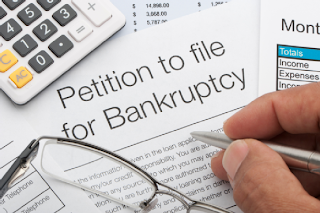The Bankruptcy Code requires a debtor to list all creditors in her bankruptcy schedules. However, a “creditor” is typically defined as someone to whom the debtor owes money. Specifically, 11 U.S.C. § 101(10)(a) defines a creditor as an “entity that has a claim against the debtor that arose at the time of or before the order for relief concerning the debtor.”
So, if the debtor has a credit card with a zero balance, the issuer of that card is NOT a creditor, and therefore, the debtor need not disclose her bankruptcy to that credit card company. However, that’s not the end of the story. Card issuers write very one-sided credit card agreements that seem to get modified all the time. The Terms and Conditions always include the following language:
“Default – You and your Account will be in default of this Agreement if: . . . you become insolvent, assign any property to your creditors, or go into bankruptcy or receivership . . .
Cancellation of your Account – We may cancel your Account or suspend your ability to use the Account at any time, with or without any specific reason and with or without prior notice to you as permissible by applicable law.”
So, even if a debtor has a zero balance credit card, the issuer has the absolute right to cancel it. But how does the credit card issuer know that a debtor filed bankruptcy if the debtor does not give the issuer notice of the bankruptcy? The answer comes from modern-day technology.
Credit card companies use sophisticated systems, like Automated Access to Court Electronic Records (AACER), to provide virtually instant data of new bankruptcy filers. They compare multiple pieces of debtor information with their account holder databases. If enough pieces of a debtor’s data match an active account, the credit card issuer assumes a match.
Once the credit card company has a match, does the card issuers always close the credit account? The answer is usually, but not always. I am aware of occasions in which the debtor used a zero balance credit cards after the bankruptcy filing. Perhaps in those instances the card company made a decision to keep the account open or maybe it simply failed to make a match. In either case, it is important to know that, despite not listing a zero balance credit card in the bankruptcy schedules, the credit card can get cancelled.
Typically, this is a short-term issue. For the vast majority of people, once the bankruptcy is over, the credit card companies will inundate the freshly discharged person with pre-approved credit card applications. It seems that the credit card companies, even those which were wiped out in the bankruptcy, want the discharged debtor to quickly get back into debt. Use caution. Debtor cards with the VISA or MASTERCARD emblem work just like credit cards, with the added benefit that the client will have a better chance of avoiding unwanted debt. Call us for more information.


No comments:
Post a Comment